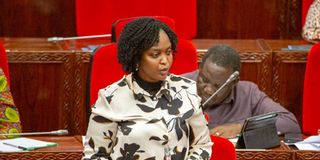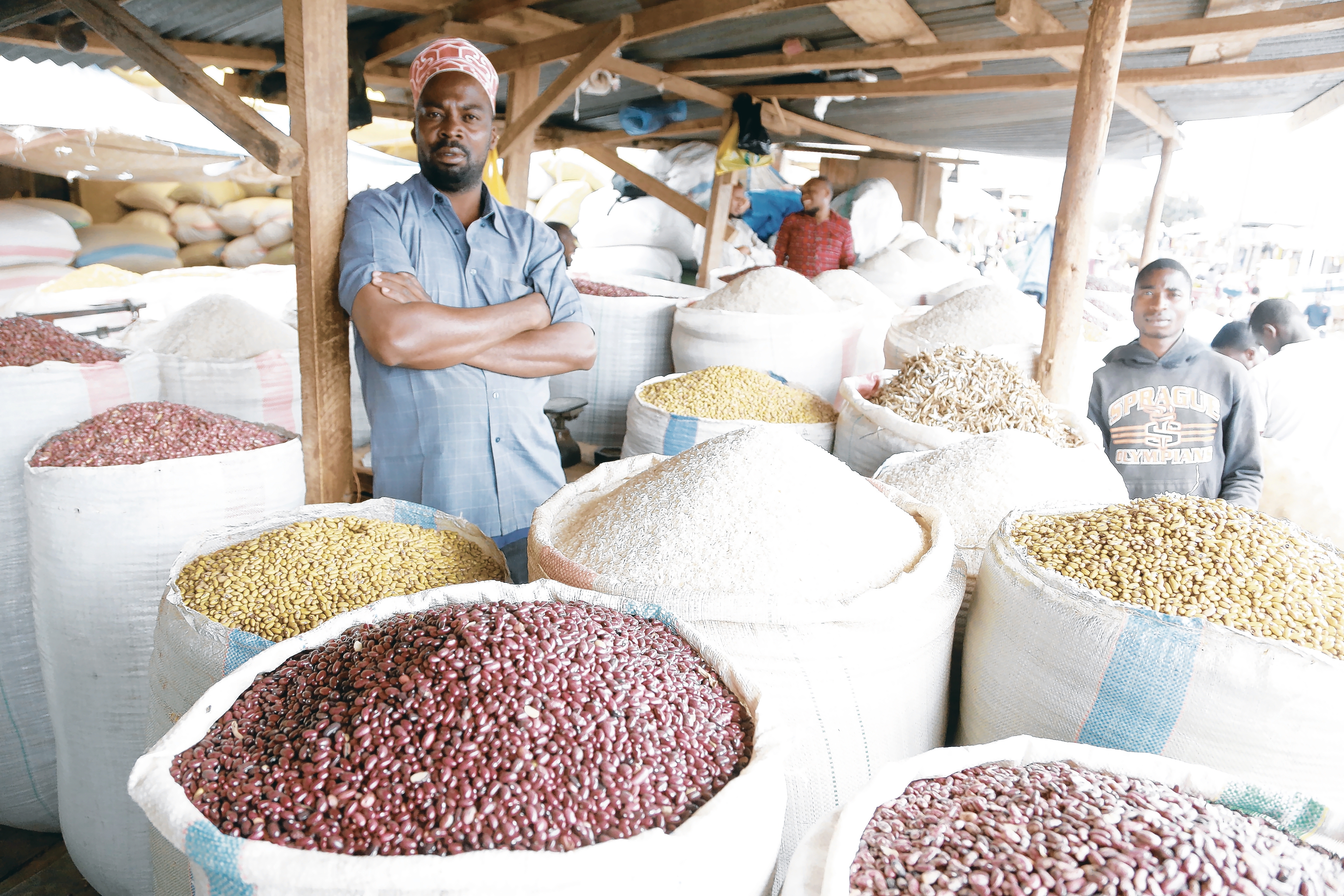MPs voice concern about food safety, education, delayed project

Segerea MP, Bonnah Kamoli, contributes to the Prime Minister's Office budget for the 2025/2026 financial year.
Dodoma. Members of Parliament raised three key concerns in the National Assembly yesterday as they debated the budget of the Prime Minister’s Office.
The issues include deteriorating food safety standards, delays in the implementation of the Msimbazi River Basin project in Dar es Salaam, and an education system that is failing to produce competent and skilled graduates.
The issues were raised by MPs Neema Lugangira, Bonnah Kamoli, and Shamsi Vuai Nahodha while contributing to the 2025/26 budget estimates for the Prime Minister’s Office.
In the proposed budget, tabled on Wednesday by Prime Minister Kassim Majaliwa, the government is seeking parliamentary approval for Sh782.08 billion for the office, its institutions, and the Parliamentary Fund.
While contributing to the debate, Special Seats MP (CCM) Neema Lugangira criticised the current state of food safety, particularly with products sold in the market — both local and imported.
“In all honesty, TBS (Tanzania Bureau of Standards) has failed to coordinate and regulate food safety. We cannot continue treating food safety as a commercial matter,” she said.
“Food safety is a matter of life and health for Tanzanians. We cannot compromise their wellbeing in the name of business.”
Ms Lugangira said the government, with Parliament’s input, decided in 2019 to abolish the Tanzania Food and Drugs Authority (TFDA) and transfer its food safety responsibilities to TBS.
She added that it was time for the Prime Minister to provide a definitive government position, as MPs have since 2021 been calling for food safety regulation to be returned to the Ministry of Health.
“We have received numerous promises from government officials acknowledging the value of the proposal — but we are still waiting. When will this responsibility return to the Health Ministry so we stop risking Tanzanians’ lives for the sake of commerce?” she asked.
Ms Lugangira further noted that Tanzanian agricultural products are sometimes rejected in external markets due to failure to meet international food safety standards.
On 26 June 2019, then-Deputy Minister of Finance and Planning, Dr Ashatu Kijaji, presented a proposal to amend the Standards Act, which resulted in the transfer of food and cosmetics regulation responsibilities from TFDA to TBS.
Meanwhile, Segerea MP (CCM) Bonnah Kamoli urged the government to speed up the Msimbazi River Basin improvement project in Dar es Salaam.
She lamented that the project has seen slow progress since its inception, despite persistent flooding in areas surrounding the river.
“Rainfall has already started, and residents continue to face flooding. People know the project exists — they need to hear from the Prime Minister on how far it has progressed,” she said.
Ms Kamoli emphasised that this is the main flood-prone area in Dar es Salaam and a matter of concern across multiple constituencies.
In a separate contribution, Nominated MP (CCM) Shamsi Vuai Nahodha argued that Tanzania’s education system is not producing graduates with adequate competence and expertise because it neither cultivates a passion for learning nor accommodates students’ talents.
He said the current educational framework stifles learners’ natural abilities by forcing them to study subjects that don’t align with their skills or interests.
“Global success stories show that those who perform best do so by pursuing what they love — areas that align with their natural talents. Forcing students to study subjects they dislike only undermines their motivation, learning, and creativity,” he said.
Mr Nahodha acknowledged the government’s recent launch of a new education policy but cautioned that its implementation will require substantial investment — particularly in training skilled teachers, constructing modern laboratories, and equipping vocational workshops.
He proposed two major interventions: first, leveraging the Open University of Tanzania (OUT) to train teachers in modern teaching techniques and technology; and second, encouraging the use of digital tools in science education, such as demonstrating how plants harness energy or how solar energy can be used domestically.
“The government should promote hands-on learning using school environments and home science. For instance, demonstrating solar energy use in household activities or promoting environmental hygiene,” he said.
He stressed that the foundation of education must support self-reliance through science, technology, and innovation.
“We have plenty of sunshine, yet our experts haven’t innovated ways to harness it efficiently. We have many engineers, yet most of our infrastructure, including bridges and buildings, is constructed by foreigners. We import gas cylinders despite having many local engineers,” he said.
Mr Nahodha called for a review of university models in Tanzania. He recommended a three-pronged approach involving research universities, technical training universities, and universities dedicated to science and technology — with a stronger emphasis on practical training over theory.





